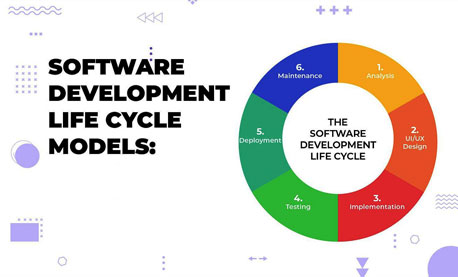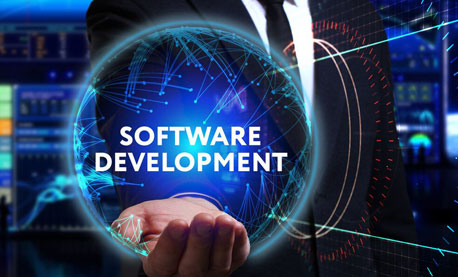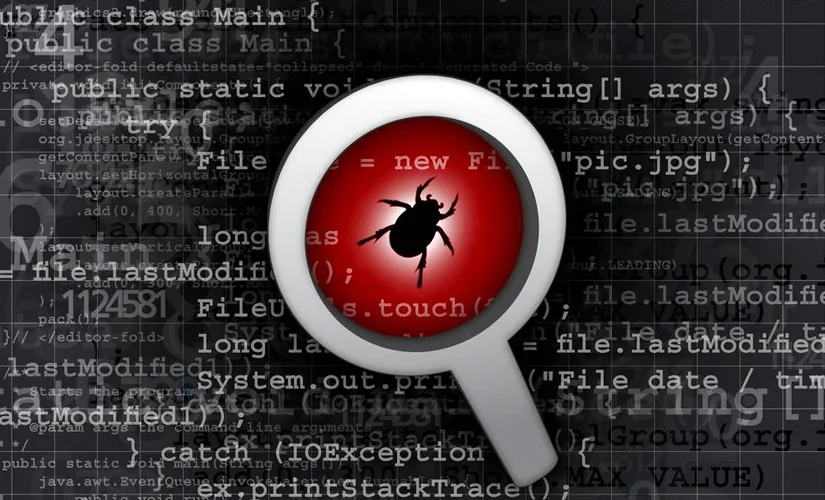Streamlining Healthcare Operations for Better Patient Care
In the fast-paced world of healthcare, efficient management of hospital operations is essential to provide quality care to patients. Hospital management software emerges as a vital tool that streamlines administrative and clinical processes, enhances operational efficiency, and improves patient outcomes. In this comprehensive article, we will explore the intricacies of hospital management software, its benefits, and how it revolutionizes the healthcare industry.
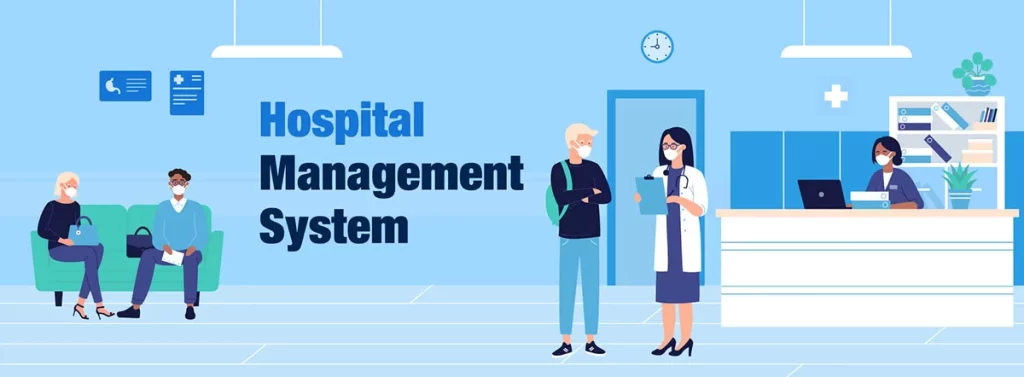
The Power of Hospital Management Software
Hospital management software is a comprehensive digital solution designed to simplify and automate various aspects of hospital operations. It encompasses a range of modules and functionalities that enable seamless coordination and collaboration among different departments, from registration and appointment scheduling to billing and inventory management. By leveraging technology and data-driven insights, hospital management software empowers healthcare providers to deliver efficient, patient-centric care.
The Importance of Hospital Management Software
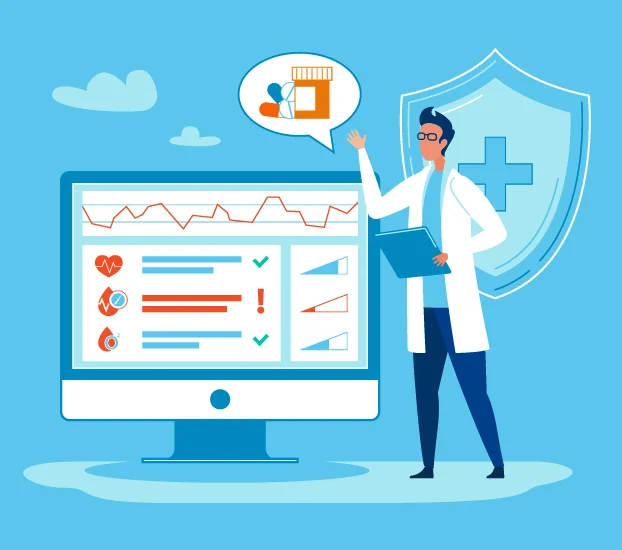
Effective hospital management software offers numerous benefits to healthcare organizations, patients, and medical professionals. Let’s delve into some key reasons why hospital management software is indispensable in the healthcare landscape:
1. Streamlined Patient Management
Hospital management software facilitates seamless patient management from admission to discharge. It automates the registration process, tracks patient demographics and medical history, manages appointments, and assists in bed allocation. This streamlines workflows, reduces waiting times, and enhances patient satisfaction.
2. Efficient Appointment Scheduling
With hospital management software, scheduling appointments becomes a breeze. The software enables online appointment booking, allowing patients to choose convenient time slots. It optimizes the allocation of doctors’ time, minimizes scheduling conflicts, and reduces no-shows, ensuring efficient utilization of healthcare resources.
3. Integrated Electronic Health Records (EHR)
Hospital management software includes an integrated electronic health records (EHR) system. EHR centralizes patient information, including medical history, diagnostic reports, prescriptions, and treatment plans. This eliminates the need for manual record-keeping, enhances data accuracy, and enables secure access to patient data for authorized healthcare professionals.
4. Streamlined Billing and Claims Management
Accurate and timely billing is crucial for healthcare institutions. Hospital management software automates billing processes, generates invoices, and manages insurance claims. It ensures accurate financial records, reduces billing errors, and expedites reimbursement cycles, ultimately improving revenue management.
5. Inventory and Pharmacy Management
Efficient inventory and pharmacy management are essential for uninterrupted healthcare services. Hospital management software tracks stock levels, automates inventory replenishment, and ensures the availability of essential medications and supplies. This minimizes stockouts, optimizes inventory costs, and improves patient safety.
6. Analytics and Reporting
Hospital management software provides valuable insights into hospital operations through advanced analytics and reporting features. It generates real-time dashboards, performance metrics, and key performance indicators (KPIs). These insights enable healthcare administrators to make data-driven decisions, identify bottlenecks, and optimize resource allocation.
Features of Hospital Management Software
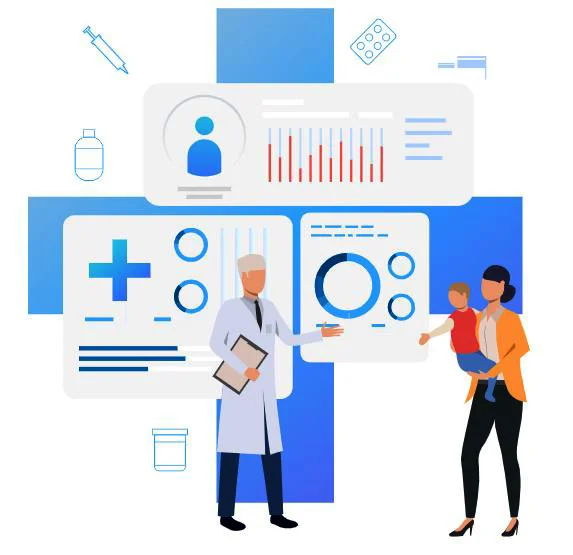
Hospital management software offers a wide range of features that empower healthcare organizations to streamline their operations and enhance patient care. Let’s explore some key features of hospital management software:
- Patient Registration: Hospital management software simplifies the patient registration process by capturing essential demographic information and generating unique patient identifiers. It ensures accurate and efficient patient record management from the start.
- Appointment Scheduling: Efficient appointment scheduling is crucial for healthcare organizations. Hospital management software enables online appointment booking, automated reminders, and real-time scheduling updates. It optimizes the utilization of healthcare resources and minimizes waiting times.
- Electronic Health Records (EHR): With integrated electronic health records, hospital management software provides a centralized repository for storing and managing patient health information. It includes medical history, diagnoses, treatment plans, lab results, and medication records. EHR enhances data accessibility, improves care coordination, and facilitates informed decision-making.
- Billing and Invoicing: Hospital management software automates the billing and invoicing process. It generates accurate invoices, tracks payments, and manages insurance claims. This feature ensures efficient revenue management and reduces billing errors.
- Pharmacy Management: Effective pharmacy management is essential for timely medication dispensing. Hospital management software includes features like inventory management, drug database, prescription management, and barcode scanning. It streamlines medication dispensing, reduces errors, and ensures adequate stock levels.
- Laboratory Management: Hospital management software integrates with laboratory systems to facilitate seamless test ordering, result tracking, and report generation. It improves turnaround time for lab tests, enhances accuracy, and enables better coordination between clinicians and laboratory staff.
- Radiology Information System (RIS): RIS functionality within hospital management software enables efficient management of radiology workflows. It includes scheduling of imaging procedures, tracking patient images, generating reports, and facilitating communication between radiologists and referring physicians.
- Inventory Management: Hospital management software provides tools for inventory management, ensuring the availability of essential supplies and equipment. It automates stock tracking, generates purchase orders, and provides real-time inventory status. This feature minimizes stockouts, reduces inventory carrying costs, and streamlines procurement processes.
- Financial Management: Hospital management software offers comprehensive financial management capabilities. It includes accounts payable, accounts receivable, general ledger, and financial reporting modules. These features help healthcare organizations maintain accurate financial records and track key financial metrics.
- Analytics and Reporting: Hospital management software generates insightful reports and dashboards, providing administrators with valuable data for decision-making. It offers performance analytics, revenue analysis, patient satisfaction metrics, and operational KPIs. This enables healthcare organizations to identify trends, optimize resource allocation, and enhance overall performance.
These are just a few of the many features offered by hospital management software. Each software solution may have additional functionalities tailored to meet specific organizational needs. By leveraging these features, healthcare organizations can streamline their operations, improve efficiency, and deliver exceptional patient care.

Conclusion
Hospital management software has revolutionized the healthcare industry by streamlining operations, optimizing patient care, and improving overall efficiency. Through features such as patient management, appointment scheduling, integrated EHR, and analytics, healthcare organizations can deliver superior care while ensuring accurate billing, efficient inventory management, and compliance with regulations. As technology continues to evolve, hospital management software will play an increasingly crucial role in transforming healthcare delivery and improving patient outcomes. GCTL INFOSYS is one of the prominent Custom Hospital management software Development Company in Bangladesh. GCTL Infosys Provide custom Hospital management software for any types of Hospital.
Frequently Asked Questions (FAQs)
Q: Is hospital management software suitable for all types of healthcare organizations?
A: Yes, hospital management software is suitable for various healthcare organizations, including hospitals, clinics, nursing homes, and specialty centers. The software’s modular structure allows customization to meet the specific needs of different healthcare settings.
Q: Can hospital management software improve patient safety?
A: Absolutely! Hospital management software enhances patient safety through features such as accurate medication administration, alert systems for allergies and drug interactions, and proper documentation of treatment procedures. It promotes adherence to safety protocols, reduces errors, and improves overall patient outcomes.
Q: Does hospital management software comply with healthcare regulations?
A: Yes, reputable hospital management software providers ensure compliance with healthcare regulations and standards, such as the Health Insurance Portability and Accountability Act (HIPAA). They implement robust security measures to protect patient data and adhere to industry best practices.
Q: Can hospital management software integrate with existing healthcare systems?
A: Yes, hospital management software can integrate with existing healthcare systems, such as laboratory information systems, picture archiving and communication systems (PACS), and billing systems. Integration enhances data exchange, eliminates duplicate data entry, and improves overall operational efficiency.
Q: How can hospital management software enhance patient engagement?
A: Hospital management software empowers patients by offering online appointment booking, access to medical records, and secure communication channels with healthcare providers. It promotes patient engagement, facilitates active participation in care decisions, and enhances the patient experience.
Q: Is training required to use hospital management software?
A: Yes, training is essential for healthcare staff to effectively use hospital management software. Reputable software providers offer comprehensive training programs and ongoing support to ensure smooth implementation and maximize the benefits of the software.






